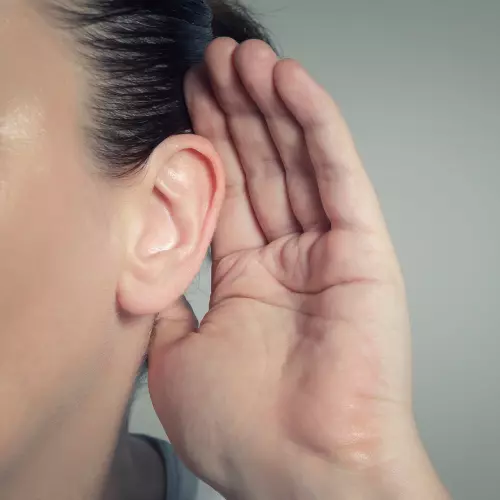How to Harness Different Types of Listening Skills

Listening is something that many people might take for granted; it just happens. It's not until you take a moment to consider what listening comprises that you start to understand how crucial it is to foster and improve this skill. Perhaps the most crucial interpersonal skill is listening, and there are many types of listening skills. Strong relationships with people are frequently built on effective listening, whether those ties be personal, social, educational, or professional.
In the communication process, listening is the capacity to accurately hear and interpret communications.
To communicate effectively, you must first listen. Messages are readily misconstrued if one lacks the skill to listen effectively. As a result, there is a communication breakdown, and the message sender may become upset or dissatisfied. Listening is one communication skill to consider actively working on.
Because listening is so crucial, many prestigious firms provide their staff with listening skills training. This is not unexpected given that effective listening abilities can result in higher productivity with fewer errors, better customer happiness, increased information sharing, and ultimately, more inventive and creative work. Many successful businesspeople and leaders are credited with having effective listening abilities. Richard Branson routinely mentions listening as one of the key elements in Virgin's success.
Jump To Section

Earn As You Learn
Earn 25% commission when your network purchase Uplyrn courses or subscribe to our annual membership. It’s the best thing ever. Next to learning,
of course.
The Importance of Listening
Listening Builds Trust
People can tell you're interested when you take the time to listen to them. They can tell that you care about what they have to say. They feel more at ease telling you things and being honest because of this. The other person won't want to waste their breath if you were just partially paying attention, not making eye contact, or looking at your phone. They won't have faith in you to value their opinions and sentiments.
Listening Reduces Misunderstandings
One of the most frequent consequences of bad communication is misunderstandings. It's incredibly easy to misunderstand something or take someone's words in the wrong way when individuals aren't paying attention to one another. Misunderstandings might not cause too much trouble, but at times they do. For instance, offering someone a dish with a risky ingredient could be fatal if they are not paying attention when their acquaintance discloses that they have a specific food allergy.
Listening Helps Eliminate Conflict
Conflicts frequently begin as a result of poor listening skills. In addition to occasionally leading to mistakes, poor listening irritates those taking part in crucial conversations. People want a certain amount of respect, which is linked to being heard. Even if you don't agree, trying to understand another person's point of view might help to keep things under control. It's much simpler to handle uncomfortable circumstances without them developing into confrontations when everyone feels safe and at ease.
Listening Encourages Empathy
Humans are empathic, yet may harbor prejudices and presumptions based on their experiences and upbringing. It can be easy to rely on preconceived beliefs while conversing with individuals who come from different backgrounds and have different experiences. You can consciously decide to listen instead of making assumptions. In developing empathy, it is important to have a deeper grasp of the other person's perspective when you hear things directly from them. This is directly related to listening.
Listening Improves Romantic Relationships
Relationship specialists frequently emphasize the need for listening. Many conflicts and heartbreaks in romantic relationships are the results of poor communication. By listening to one another, you establish a secure environment free from bias. As many unhappy couples are accustomed to interrupting and talking over one another, this can require a lot of practice. Exercises to improve listening skills might be suggested by a licensed couple's therapist to structure the process.
As mentioned, there are different types of listening skills. Figuring out what sort of listener you currently are can help you determine how best to go about becoming a better listener.

Discriminative Listening
Through childhood and into maturity, discriminative listening develops. Our capacity to discern between various noises gets better as we age, mature, and accumulate more life experience. We learn to distinguish minute changes in the way sounds are produced, which is essential to finally understanding what these sounds represent. This goes beyond just being able to distinguish between different voices. The ability to recognize other languages, differentiate between regional accents and pick up on nuances that reveal a speaker's emotions and moods are just a few examples of the differences.
Informational Listening
Listening that is done to learn something is valid in a variety of everyday contexts, including education and the workplace, as well as when you watch a documentary, listen to the news, get recipe instructions from a friend, or get assistance with a computer-related issue.
Even while all forms of listening may be "active," understanding requires focus and effort. Compared to many other listening styles, informational listening is less active. When we listen to learn or be instructed, we are absorbing new facts and information; we are not analyzing or critiquing. To preserve important information so that it may be reviewed later, note-taking is frequently used in conjunction with informational listening, especially in formal contexts like meetings at work or in the classroom.
Critical Listening
When we intend to assess or examine what is being said, we can say that we are practising critical listening. When compared to informational listening, critical listening is far more active and typically involves some sort of problem-solving or decision-making.
Similar to critical reading, critical listening involves analysing the information and comparing it to what we already know or think. While receiving facts and/or fresh information may be the main focus of informational listening, critical listening focuses on analysing opinions and passing judgement.

Empathetic Listening
It's helpful to listen with empathy to understand other people's viewpoints.
When listening in this way, you can make an effort to comprehend the viewpoint of the speaker.
You can strive to comprehend someone's feelings through empathetic listening to offer support. Here's an illustration: Let's imagine your boss just informed you that the corporate outing this week has been postponed owing to budget restrictions. You can determine how much strain your supervisor is under by listening with empathy. You can picture yourself having to deliver the disappointing news.
You are aware that there is pressure from above to adhere to the budget. Additionally, you are aware that there is staff pressure. You are not angry since you know why your supervisor made this choice.
Check out our Active Listening Skills online course from Amit Ganguly.


Leave your thoughts here...
All Comments
Reply